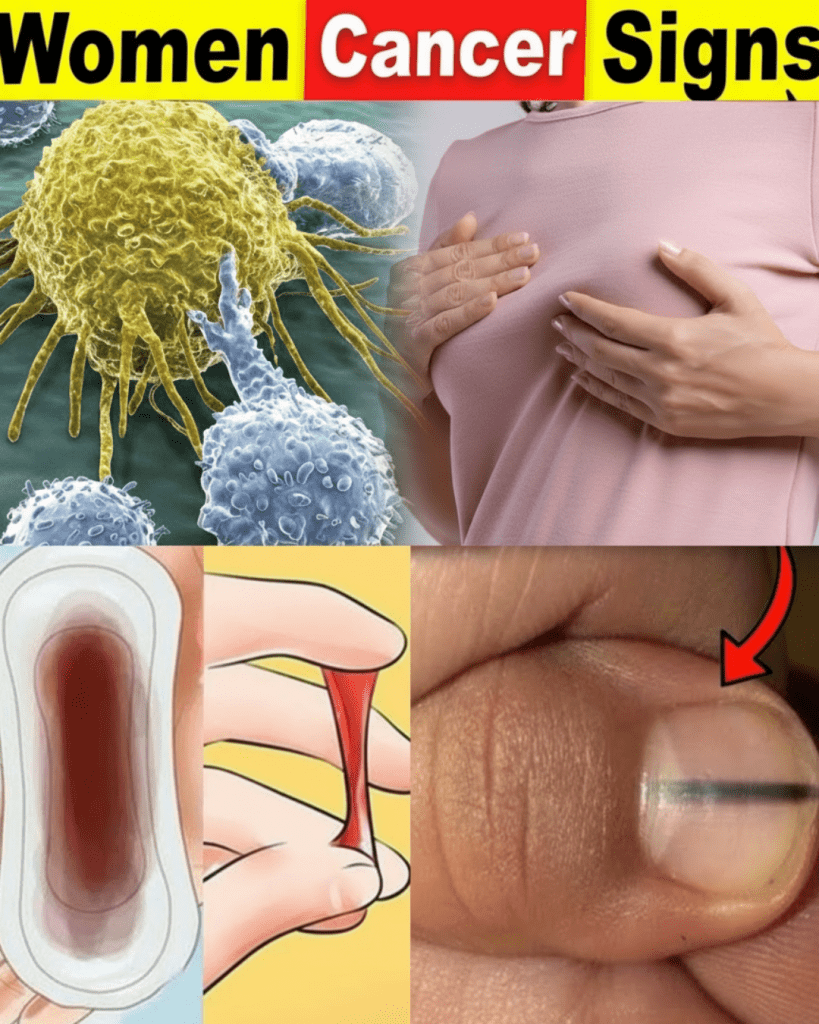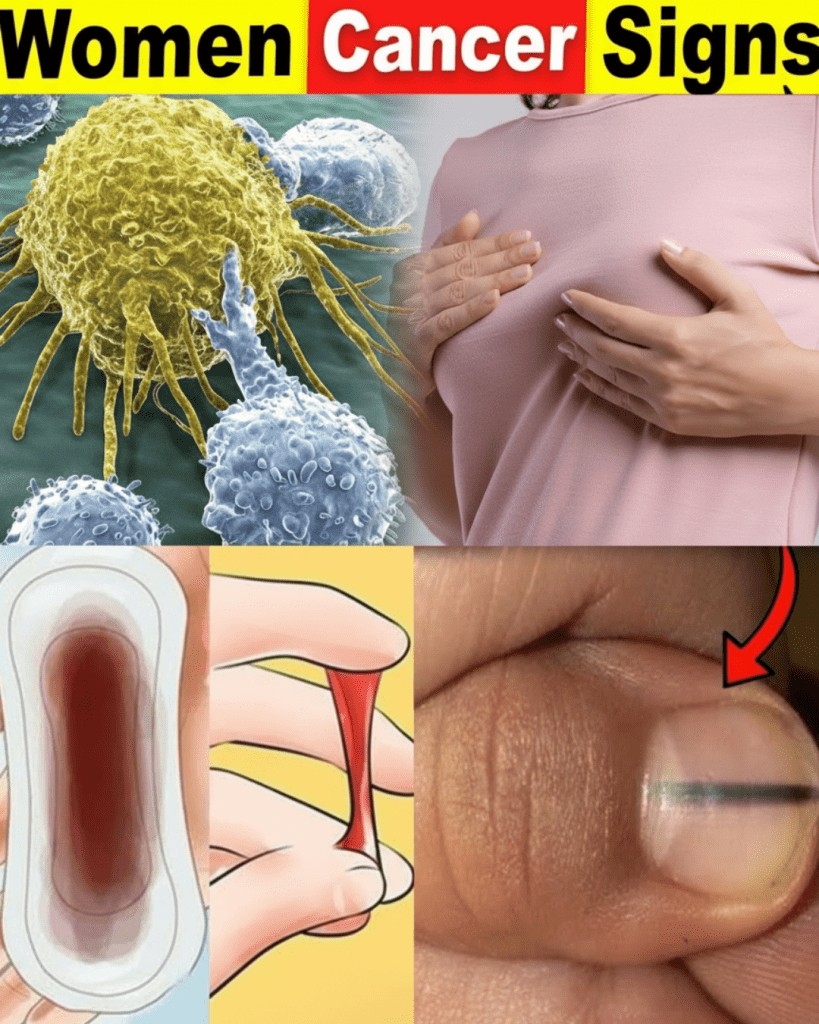Every woman’s body tells a story, whispering clues about its health. But what if those whispers are warning signs of something far more serious—like cancer? Too often, subtle symptoms are brushed off as stress, hormones, or minor ailments. Yet, early detection can be the difference between life and death. This guide unveils 14 critical signs of cancer every woman must know, designed to empower you to act swiftly and protect your future. Read on to uncover these silent signals and take charge of your health with confidence.

Why Early Detection Matters
Cancer doesn’t always announce itself loudly. It can hide behind everyday discomforts, making it easy to dismiss. But recognizing these signs early can lead to faster diagnosis and better outcomes. This isn’t just information—it’s a lifeline. By staying vigilant, you’re not just protecting yourself; you’re safeguarding the moments that matter most with loved ones. Let’s dive into the signs that demand your attention.
🩺 Unexplained Lumps or Swelling
A new lump or swelling anywhere on your body—whether in your breast, neck, underarm, or elsewhere—should never be ignored. Even if it’s painless, it could signal breast cancer or lymphoma. These growths might feel like a small pebble under the skin, but their presence is a call to action. Schedule a doctor’s visit immediately to rule out serious conditions. Your body is speaking—listen closely.
🔍 Skin Changes That Raise Red Flags
Your skin is a window to your health. New moles, dark spots, thickened patches, or sores that refuse to heal could be early signs of skin cancer. Pay attention to changes in color, shape, or texture. A mole that evolves or a patch that persists isn’t just cosmetic—it’s a potential warning. Regular skin checks and dermatologist visits can catch these changes before they progress.
🩻 Breast or Nipple Changes
Your breasts are uniquely yours, and any shift in their appearance deserves scrutiny. Look for changes in shape, dimpling, redness, or unusual nipple discharge. Inverted nipples or persistent soreness are also red flags. These could point to breast cancer, a disease where early detection saves lives. Perform monthly self-exams and schedule regular mammograms to stay proactive.
🚨 Abnormal Vaginal Bleeding
Bleeding outside your normal cycle—between periods, after intercourse, or post-menopause—is never normal. This could indicate cervical, uterine, or ovarian cancer. Even light spotting warrants investigation. Don’t dismiss it as “just hormones.” Consult your gynecologist promptly to uncover the cause and ensure timely intervention.
🌬️ Persistent Bloating
Feeling bloated occasionally is normal, but constant bloating or a swollen belly that lingers despite dietary changes is not. This could signal ovarian or gastrointestinal cancer. If your abdomen feels heavy or tight for weeks, it’s time to seek medical advice. Early action could uncover a hidden issue before it escalates.
⚡ Pelvic or Lower Back Pain
Ongoing pain in your pelvis, lower abdomen, or lower back isn’t just discomfort—it could be a sign of ovarian, uterine, or other reproductive organ cancers. Unlike temporary aches, this pain persists and may intensify over time. Don’t chalk it up to stress or fatigue. A doctor’s evaluation can pinpoint the cause and guide next steps.
🚽 Changes in Bowel Habits
Your digestive system is a sensitive indicator of health. Persistent constipation, diarrhea, or blood in your stool could point to colon or rectal cancer. These changes might feel embarrassing to discuss, but they’re critical to address. If your bowel habits shift for more than a few weeks, consult a healthcare provider to explore the underlying cause.
🩺 Urinary Problems or Blood in Urine
Frequent urination, pain while urinating, or blood in your urine are not just inconveniences—they could signal bladder or kidney cancer. These symptoms might mimic a urinary tract infection, but if they persist, further investigation is essential. Don’t wait for the problem to worsen; early testing can make all the difference.
😴 Chronic Fatigue That Won’t Quit
Everyone feels tired sometimes, but constant fatigue that rest doesn’t resolve is a red flag. This overwhelming exhaustion could be linked to leukemia, lymphoma, or other cancers affecting blood and energy levels. If you’re sleeping enough but still drained, it’s time to consult a doctor to uncover the root cause.
⚖️ Unintentional Weight Loss
Losing weight without trying sounds like a dream, but it can be a nightmare. Dropping more than 5–10% of your body weight unexpectedly could indicate cancer’s metabolic effects. This isn’t about diet or exercise—it’s your body signaling something’s wrong. A medical evaluation can help determine if cancer is the culprit.
🗣️ Persistent Cough or Hoarseness
A cough that lingers beyond two weeks or a hoarse voice that doesn’t clear could point to lung, throat, or thyroid cancer. These symptoms might feel like a stubborn cold, but their persistence is a warning. If you’re coughing or sounding raspy for no clear reason, see a doctor to rule out serious conditions.
🍽️ Difficulty Swallowing
Struggling to swallow or feeling pain when you do could indicate esophageal or throat cancer. This isn’t just a sore throat—it’s a persistent issue that disrupts eating or drinking. If this sensation lasts more than a few weeks, seek medical attention to investigate the cause and protect your health.
🩹 Easy Bruising or Unusual Bleeding
Frequent bruises, bleeding gums, or nosebleeds without obvious cause could signal blood cancers like leukemia. These signs suggest your body’s clotting or blood cell production may be off. Don’t dismiss frequent bruising as clumsiness—consult a doctor to explore potential underlying issues.
🦷 Mouth Sores or White Patches
Sores or white patches in your mouth or throat that don’t heal after two weeks could indicate oral cancer, especially if you smoke or drink heavily. These might appear as small ulcers or rough patches. Regular dental checkups and prompt reporting of these symptoms can lead to early detection and treatment.

Empowering Yourself Through Awareness
Knowledge is power, but action is life-saving. These 14 signs are your body’s way of sounding the alarm. Don’t let embarrassment, fear, or a busy schedule stop you from seeking answers. Regular checkups, screenings, and self-exams are your armor against cancer. By staying vigilant, you’re not just protecting your health—you’re ensuring you’re there for the moments that matter most.
Taking the Next Step
If any of these symptoms resonate with you, don’t wait. Schedule a doctor’s appointment, discuss your concerns, and request appropriate screenings. Early detection often leads to more effective treatments and better outcomes. Share this knowledge with the women in your life—your mother, sister, daughter, or friend. Together, you can build a community of awareness and empowerment.
Living with Confidence
Cancer is a formidable opponent,









